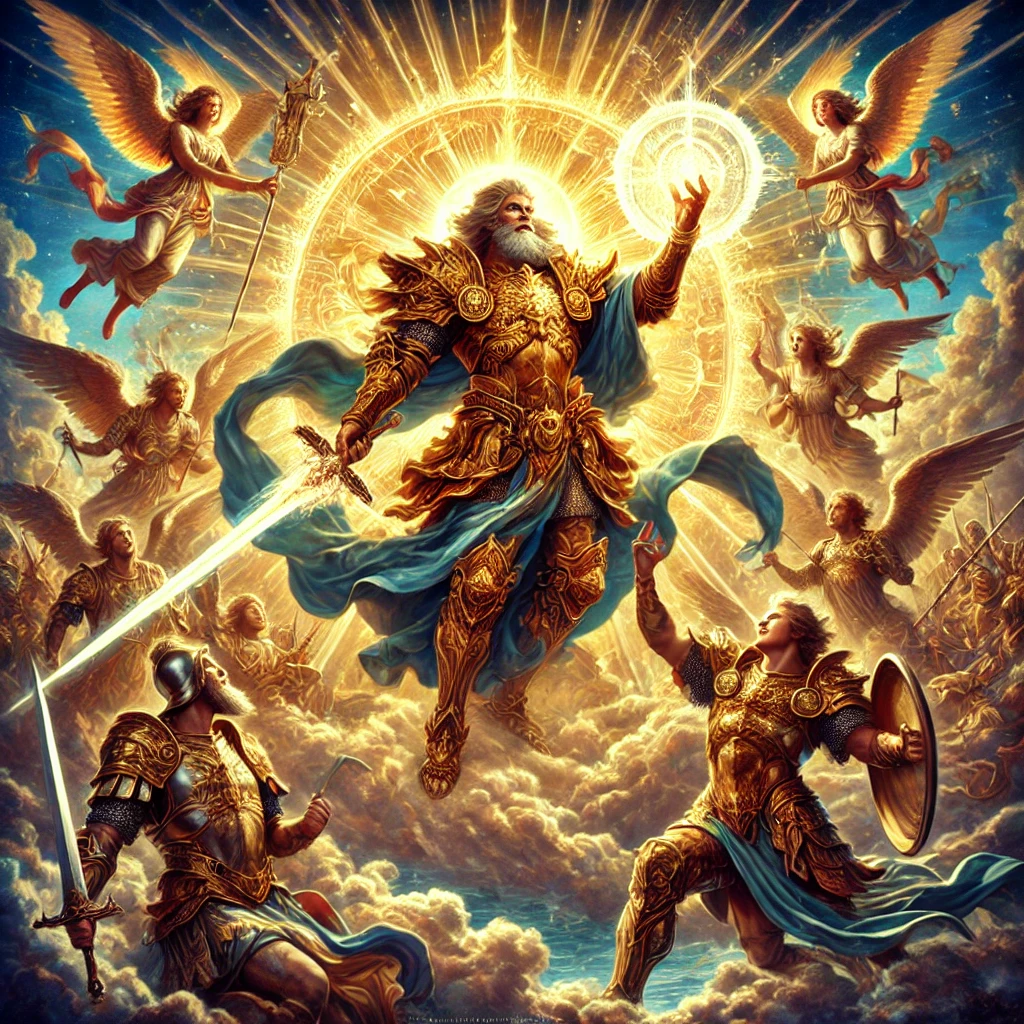Understanding Isaiah 54:5
Exploring the Depths of God’s Relationship with His People
Isaiah 54:5 states, “For your Maker is your husband—YAHWEH Tzava’aot is His Name—the Holy One of Israel is your Redeemer; He is called the God of all the earth.”
This verse is a profound declaration of the intimate relationship between God and His people, offering a message of hope, restoration, and divine companionship.
The Context of Isaiah 54:5
The Book of Isaiah is one of the most significant prophetic books in the Hebrew Holy Scriptures, attributed to the prophet Isaiah. Chapter 54 is part of the “Book of Comfort,” which spans chapters 40 to 66. These chapters were written to the people of Israel during their exile in Babylon, a period marked by despair and a sense of abandonment.
Isaiah 54 serves as a message of consolation and encouragement. The chapter opens with a call to rejoice and expands on the themes of redemption and restoration. The imagery used in Isaiah 54:5 is particularly poignant, portraying God as both a Maker and a husband to His people.
God is Our Maker
This profound verse reminds us that God is not only the Creator of the universe but also intimately involved in our lives. As our Maker, He knows us intricately and cherishes us deeply. He is our Redeemer, lifting us from our trials and tribulations, and His love and support are unfailing, extending to every corner of the earth. This verse encapsulates the boundless compassion and omnipotence of God, emphasizing the inclusive, personal and universal nature of His care and providence.
Additionally, Psalms 139 beautifully complements this understanding of God as our Maker. It says, “For you created my inmost being; you knit me together in my mother’s womb. I praise you because I am fearfully and wonderfully made; your works are wonderful, I know that full well” (Psalms 139:13-14). This passage from Psalms highlights how intimately God is involved in our creation, right from the very beginning. It reinforces the idea that we are wonderfully made by a loving Creator who knows every detail of our existence.
God as the Husband
The metaphor of God as a husband is rich with meaning. In ancient Israel, marriage was a covenantal relationship that involved love, commitment, and faithfulness. By referring to Himself as the husband, God is emphasizing His unwavering commitment and love for His people.
This metaphor also implies intimacy, provision, and protection. A husband in Biblical times was responsible for the well-being of his wife, providing for her needs and ensuring her safety. Similarly, God promises to be a source of protection and provision for His people. This assurance was particularly comforting for the Israelites, who felt vulnerable and desolate in their exile.
LORD of Hosts [YHWH Tzava’aot]
Referring to God as “the LORD of hosts” or Hebrew “YAHVEH TZAVA’AOT” underscores His supreme power and authority. It is a reminder that the God who is intimately involved in the lives of His people is also the sovereign ruler of the universe. This duality of intimacy and omnipotence provides a profound sense of security and hope.
The Holy One of Israel
The title “the Holy One of Israel” further emphasizes God’s unique relationship with the nation of Israel. It reflects His holiness, purity, and separateness from all other gods or beings. This designation reassures the Israelites of their special status as God’s chosen people, set apart for His purposes.
The powerful Name of YHWH Tzava’aot is the Holy ONE of Israel. You cannot have a faith in the God of the Bible without acknowledging and respecting that He is the Holy One of Israel. Israel cannot be removed from our faith – as the Covenant and promises are between YHWH and Israel. The Old Testament (Hebrew Holy Scriptures) are never done away with.
God as the Redeemer
The term “Redeemer” carries significant theological weight in the Bible. It denotes one who delivers or rescues from bondage or tyranny. In the context of Isaiah 54:5, God is portrayed as the Redeemer who will rescue His people from their exile and restore them to their homeland.
God’s love will redeem His people [Isaiah 43:1]
“Fear not, for I have redeemed you; I have called you by Name, you are mine”
This redemption is not merely physical but also spiritual. It points to a Covenant where God will restore His people to a right relationship with Him, free from sin and its consequences. It is called the New Covenant in Jeremiah 31:31 – 34:
“But this is the covenant which I will make with the house of Israel after those says, says YHWH: I will put my Law within them, and I will write it upon their hearts; and I will be their God and they shall be My people“
The right relationship is the New Covenant God will have with house of Israel where the Commandments of YAH shifts from the physical tablets of stone to the tables to of the human heart.
Redemption has to do with what is described in Ezekiel 36: 25-27
“I will sprinkle clean water on you, and you shall be clean from all your uncleanness, and from all your idols I shall cleanse you. A new heart I will give you, and new spirit I will put within you; and I will take out of your flesh the heart of stone and give you a heart of flesh. And I will put my Spirit within you, and cause you to walk in my statutues and be careful to observe my ordinances“
The God of All the Earth
The phrase “the God of all the earth” expands the scope of God’s dominion beyond Israel to encompass the entire world. It affirms that God’s sovereignty and care are not limited to a single nation but extend to all creation. This universal aspect of God’s character invites all people to find their hope and security in Him.
Isaiah 54:5 is indeed intimate, illustrating that God, metaphorically as a husband, is our provider and protector. He is the Creator of the universe and the earth. From Him comes wisdom, understanding, battle strategies, riches, glory, anointing, and love. His army is at His disposal and command to defend and protect us, fight for us, and remove every obstacle in our path. His Name is YAHWEH TZAVA’AOT, the Lord of Hosts.
Application for Today
Isaiah 54:5 remains a powerful source of encouragement for believers today. It reminds us of YHWH Tzava’aot’ s unwavering love and commitment, His supreme power and authority, and His role as our Redeemer. In times of despair or uncertainty, this verse invites us to find solace in the intimate and all-encompassing care of YAH.
For individuals facing personal trials, the verse offers reassurance that YAH is both intimately involved in their lives and has the power to bring about redemption and restoration. It is a call to trust in YAH’s faithfulness and to find hope in His promises.
This divine love is beautifully echoed in Jeremiah 31:3 where God declares, “I have loved you with an everlasting love; therefore I have continued My faithfulness to you.” This everlasting love and continued faithfulness from YAH a foundation for the intimate assurance found in Isaiah 54:5.
Moreover, Isaiah 54:5’s power is evident in Biblical narratives such as Hannah’s prayer in 1 Samuel 1:11 and David’s battle against Goliath. Hannah invoked God’s name “YAHWEH TZAVA”AOT” as she prayed earnestly for a child, and in His faithfulness, YAH granted her request, blessing her with Samuel. Similarly, David, a young shepherd, faced the giant Goliath with unwavering confidence in Name of YAHWEH TZAVA’AOT [LORD of hosts]. His victory was a testament to God’s power in both physical and spiritual battles.
These examples illustrate that invoking God’s Original Hebrew Names brings divine intervention and triumph, reinforcing the idea that YAH is not only a Redeemer but a mighty warrior who fights for His people.
Conclusion
Isaiah 54:5 is a verse that encapsulates the depth and richness of YAH’s relationship with His people. It offers a message of hope and assurance, reminding us of YAH’s intimate care, His supreme authority, and His redemptive power. As we meditate on this verse, may we be encouraged to trust in YAH’s unfailing love and to seek His presence in every aspect of our lives.

